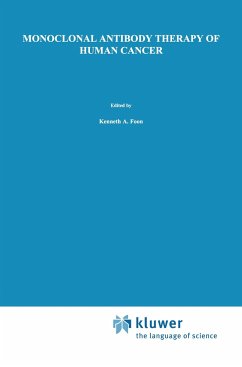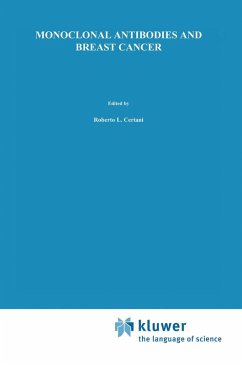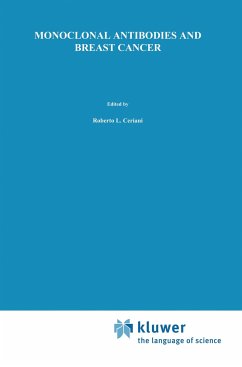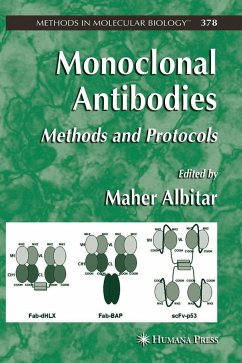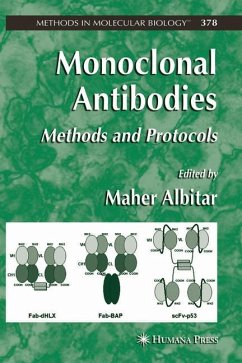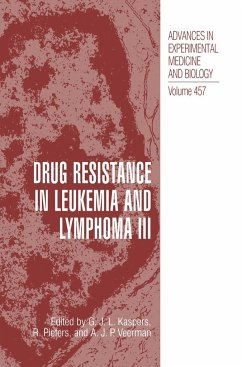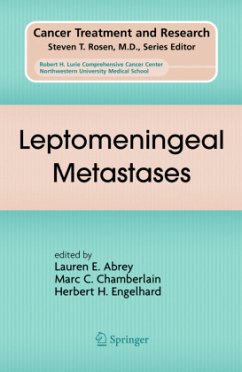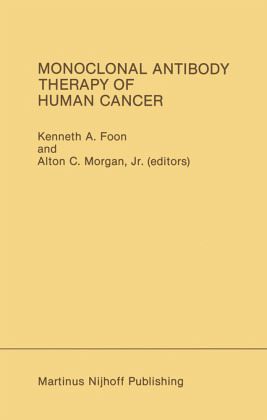
Monoclonal Antibody Therapy of Human Cancer
Versandkostenfrei!
Versandfertig in 1-2 Wochen
77,99 €
inkl. MwSt.

PAYBACK Punkte
39 °P sammeln!
KENNETH A. FOON and ALTON C. MORGAN, JR. Passive immunotherapy using heteroantisera for the treatment of cancer in animals and humans has been studied for over 50 years. Attempts have been made to treat animal tumors with sera from immunized syngeneic, allogeneic, or xenogeneic animals. A number of studies of passive immunotherapy using heterologous antisera in humans have also been performed. These studies have generally been attempted in patients with large tumor burdens, and as would be expected, results have been transient at best. A wide variety of solid tumors as well as leukemias and ly...
KENNETH A. FOON and ALTON C. MORGAN, JR. Passive immunotherapy using heteroantisera for the treatment of cancer in animals and humans has been studied for over 50 years. Attempts have been made to treat animal tumors with sera from immunized syngeneic, allogeneic, or xenogeneic animals. A number of studies of passive immunotherapy using heterologous antisera in humans have also been performed. These studies have generally been attempted in patients with large tumor burdens, and as would be expected, results have been transient at best. A wide variety of solid tumors as well as leukemias and lym phomas have been treated with antisera raised in sheep, horses, rabbits, and goats. Problems such as anaphylaxis, serum sick ness, and severe cytopenias have been encountered with these antisera. There are a number of potential mechanisms by which unconju gated antibodies might be cytotoxic to tumor cells. Antibodies bound to the cell surface membrane of tumor cells may lead to cell lysis by complement-dependent or antibody-dependent cellu lar cytotoxicity. Circulating tumor cells bound by antibody may be more susceptible to phagocytosis by the reticuloendothelial system. Antibody bound to the cell surface membrane of tumor cells may enhance immunogenicity of the tumor cell leading to activation of the host's immune system.



